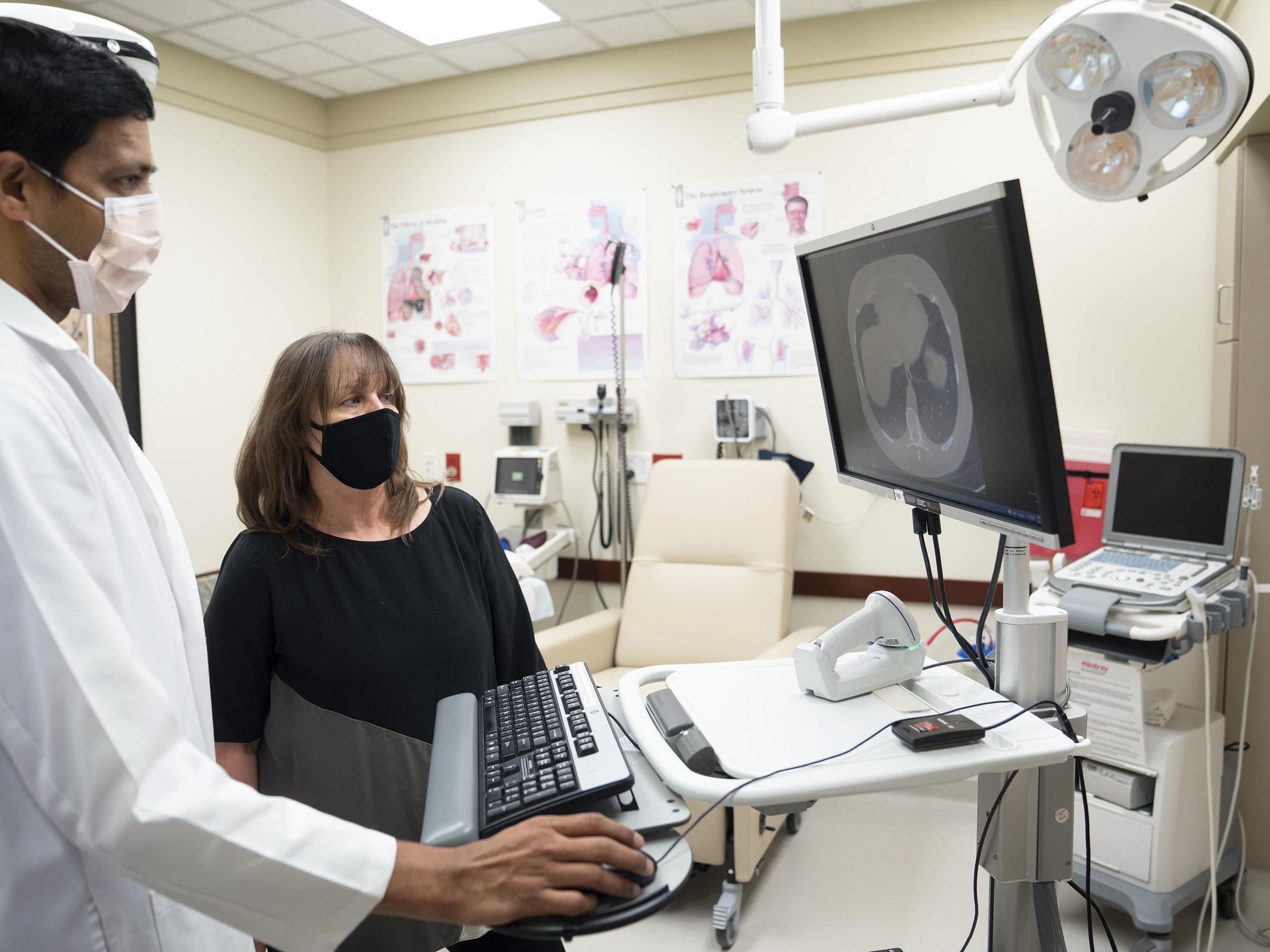
Lung Cancer Screening
to schedule an appointment
About Lung Cancer Screening
Lung cancer screening helps find lung cancer early, when it is easier to treat. The screening test for lung cancer is called a low-dose CT scan. Low-dose CT scan has been shown to lower the risk of dying from lung cancer in heavy smokers.
Lung Cancer Screening Near You
You can receive a low-dose CT scan at Huntsman Cancer Institute or at one of University of Utah Health’s neighborhood health centers. We offer the following services:
- Low-dose CT scan for lung cancer. Your low-dose CT scan will be read by an expert lung radiologist from Huntsman Cancer Institute and University of Utah Health.
- Expert care. If you've been diagnosed with lung cancer, we provide expert care.
Farmington Health Center
165 N. University Ave
Farmington, UT 84025
Huntsman Cancer Institute
1950 Circle of Hope Dr.
Salt Lake City, UT 84112
Redwood Health Center
1525 West 2100 South
Salt Lake City, UT 84119
South Jordan Health Center
5126 W. Daybreak Parkway
South Jordan, UT 84009
Sugar House Health Center
1280 E. Stringham Avenue
Salt Lake City, UT 84106
University of Utah Hospital
50 N. Medical Drive
Salt Lake City, UT 84132
What Is a Low-Dose CT Scan?
A low-dose CT scan is an X-ray machine that uses low doses of radiation to create detailed pictures of your lungs. The pictures provide a 3D view of the lungs. The images are very detailed and can show early-stage lung cancers that may be too small to see on a traditional X-ray.
Lung Cancer Screening Guidelines
How often do I need a low-dose CT scan?
Huntsman Cancer Institute and University of Utah Health recommend you get lung cancer screening (low-dose CT scan) every year if you:
- are 50 years old or older,
- smoke now or have quit within the past 15 years, and
- have a history of heavy smoking (for example, an average of one pack of cigarettes a day for 20 years).
Talk to your doctor about the risk and benefits of lung cancer screening.
What to Expect During a Low-Dose CT Scan
A low-dose CT scan is a quick and painless scan of your lungs. It does not use injections or dyes.
When you arrive, you may be asked to change into an exam gown. During the scan, you will lie on your back on a table. The table rolls into a machine shaped like a donut. You will still be able to hear and see outside the machine at all times during the scan. The technician takes x-rays images of your lungs.
It is important that you stay very still. You will be asked to hold your breath a few times to make sure the images don’t blur. The scan itself only takes a few minutes.
Low-Dose CT Scan Results
Radiologists, who are experts in lung imaging, will look at the images and results will be sent to your doctor. Your doctor will share the results with you and discuss next steps.
Prevent Lung Cancer
Lung cancer can be caused by many risk factors other than smoking cigarettes:
- Radon
- Air pollution
- Secondhand smoke
- Asbestos
- Family history of lung cancer
The good news is you can prevent lung cancer. Learn more about lung cancer prevention.
Lung cancer is currently the second most common cancer for both men and women. It is the leading cause of cancer-related deaths in the United States.

